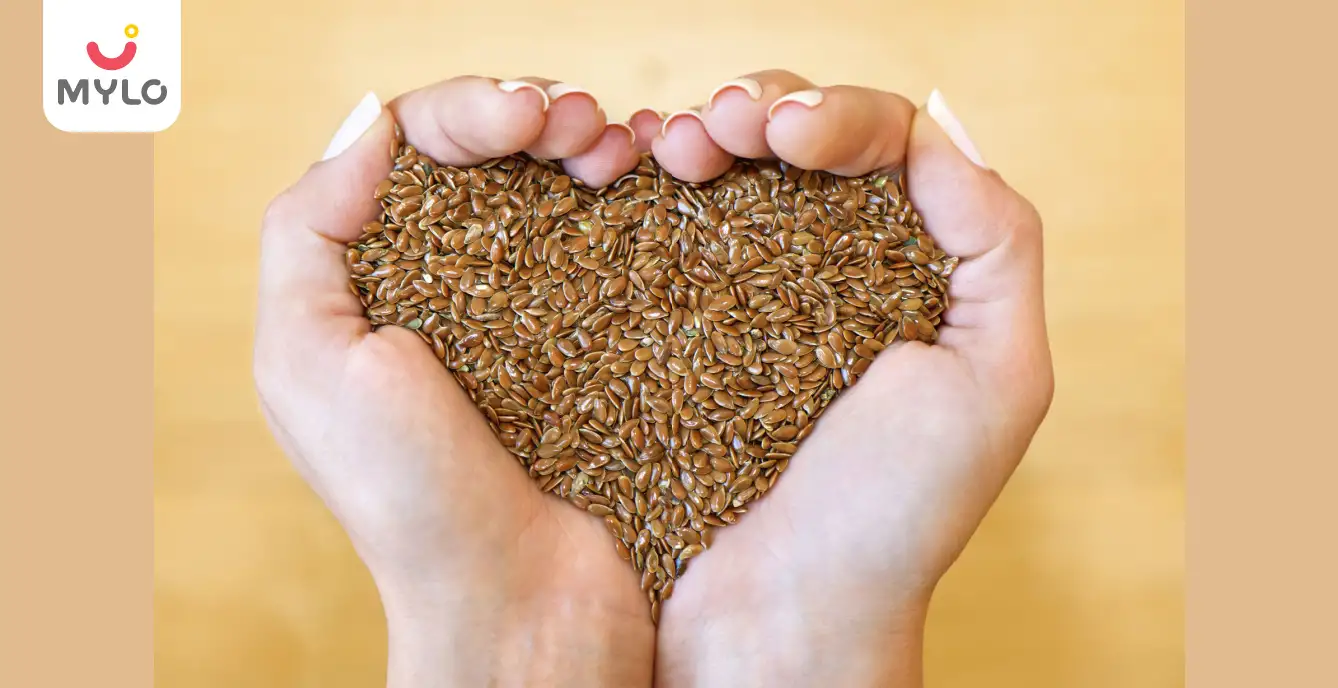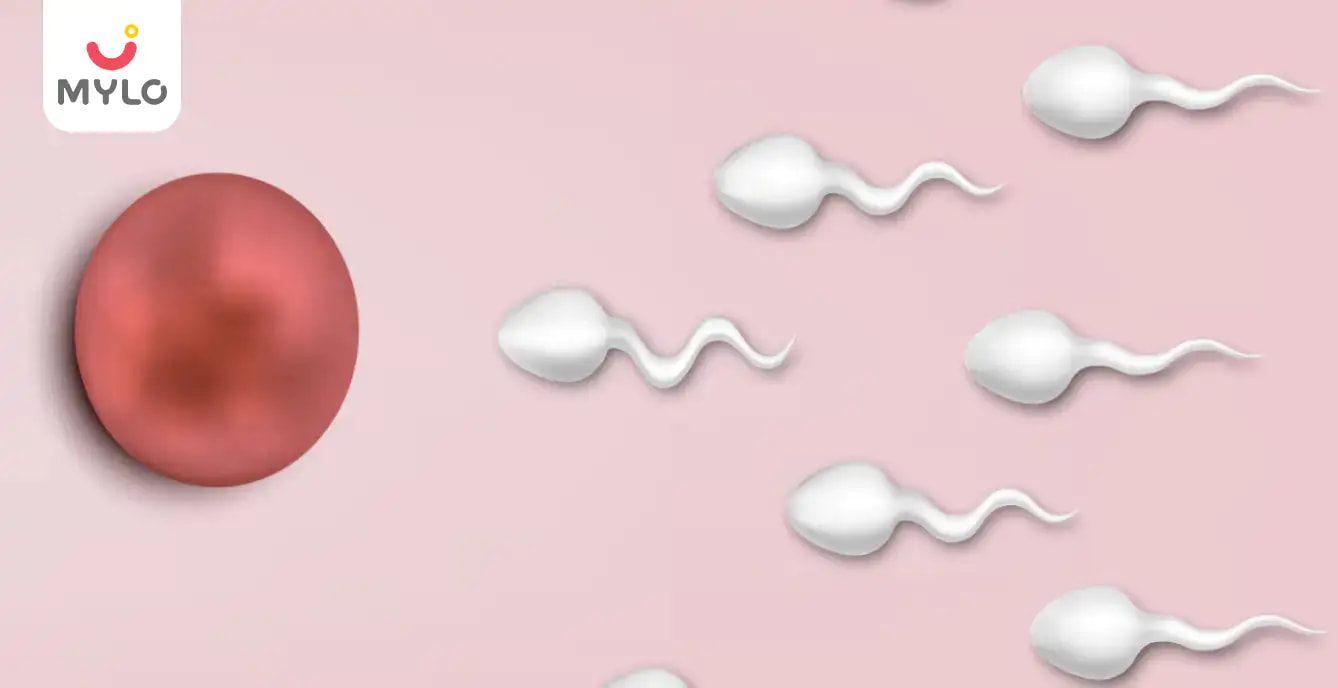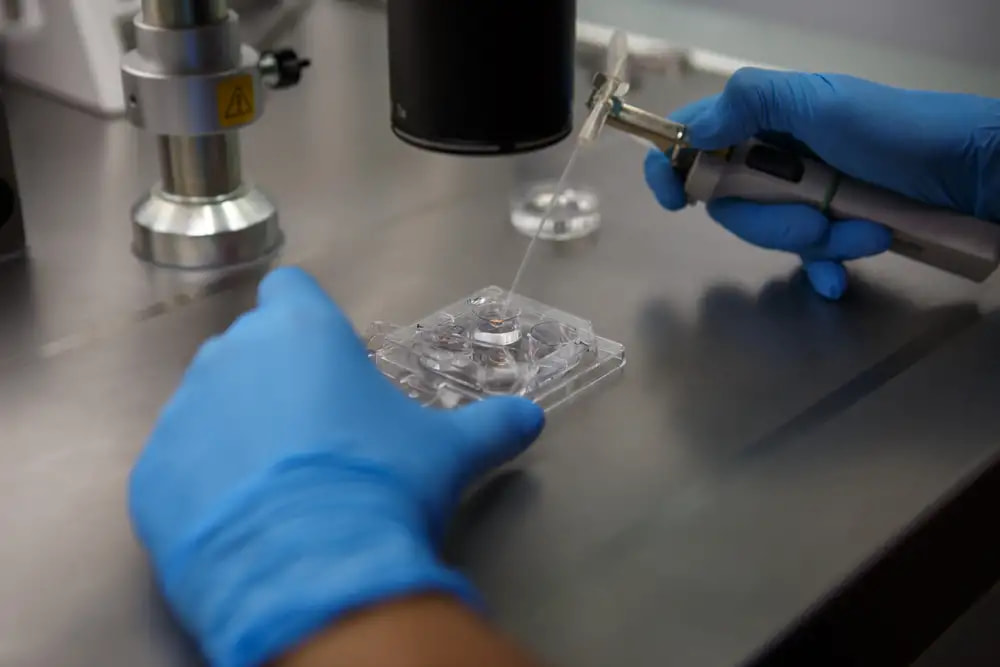Home

Understanding How Male Fertility Changes with Age
In this Article

Pregnancy
Understanding How Male Fertility Changes with Age
Updated on 19 September 2023
Men and women have different fertility patterns and this difference is even more pronounced when the age of the person is taken into account. Male fertility declines with age while female fertility peaks in the early teens and late 20s and then declines steadily and rapidly. This article looks at how male fertility changes with age and the various factors that affect male fertility.
What is male fertility?
Male fertility is the ability of a man to father a child. It is determined by multiple factors such as sperm motility, count, morphology, and semen quality. A man's fertility can be affected by many different factors such as lifestyle, medical conditions, and age.
You may also like: Semen Analysis: A Comprehensive Look at Male Reproductive Health
Factors affecting male fertility
There are many factors that can affect a man's fertility. These include:
1. Lifestyle factors
Lifestyle factors such as smoking, alcohol consumption, and drug use, as well as medical conditions such as diabetes, obesity, and hypertension.
2. Environmental factors
Environmental factors such as exposure to toxins, pesticides, and radiation also play a role.
3. Age
Age is also a major factor when assessing male fertility. As men age, their sperm count and motility decrease. This decrease in fertility is more pronounced in men over the age of 40.
Understanding fertility by age
It is important to understand the impact of age on male fertility. As men age, their fertility declines. The decline is more pronounced in men over the age of 40. This decline is attributed to a decrease in sperm count, motility, and semen quality.
1. Fertility trends for men in their 20s
For men in their 20s, their fertility is generally considered to be at its peak. The sperm count is high and the motility and morphology are also good. However, lifestyle factors can still have an impact on fertility. Smoking and excessive drinking can reduce sperm count, motility, and morphology. Exposure to environmental toxins and radiation can also have an impact.
2. Fertility trends for men in their 30s
Men in their 30s are still considered to be in their prime fertility years. However, the decline in fertility starts to become more pronounced in this age group. The decline is attributed to a decrease in sperm count and motility, as well as a decrease in semen quality.
3. Fertility trends for men in their 40s
By the time men reach their 40s, their fertility has decreased significantly. The decline is attributed to a decrease in sperm count, motility, and semen quality. The decline is more pronounced in men over the age of 40 than it is in men in their 30s.
You may also like: Normal Sperm Count to Get Pregnant: Required Quantity and Tips to Achieve It
Impacts of lifestyle on male fertility
Lifestyle factors can have a significant impact on male fertility. Smoking, drinking, and drug use can all decrease sperm count and motility, as well as reduce semen quality. Exposure to environmental toxins and radiation can also have an impact. Eating a healthy diet and exercising regularly can help to improve fertility.
Common male fertility treatments
If male fertility is an issue, there are a number of treatments available such as:
1. Medications
Medications are often used to treat male infertility caused by hormonal imbalances, low sperm count, or poor sperm motility. Examples include Clomiphene citrate, which stimulates the release of hormones needed for sperm production, and Human Chorionic Gonadotropin (hCG), which increases testosterone levels to improve sperm count and quality.
2. Lifestyle Changes
Adopting a healthy lifestyle can positively impact male fertility. This includes maintaining a balanced diet, regular exercise, avoiding excessive alcohol and tobacco consumption, managing stress levels, and maintaining a healthy weight. These changes can help improve sperm quality and overall reproductive health.
3. Supplements and Ayurvedic Herbs
Some supplements and Ayurvedic herbs may improve male fertility. Coenzyme Q10, zinc, selenium, and vitamin E are commonly recommended supplements to support sperm health. Ayurvedic herbs like Ashwagandha, Shilajit, and Tribulus terrestris are believed to enhance fertility by improving sperm count, motility, and quality.
Men looking to boost their fertility can also try Mylo's Potenmax Testosterone Booster Capsules that are an effective blend of Omega-3 fatty acids, safed musli, ashwagandha, fenugreek and kaunch beej, among others. These ingredients can help improve sperm motility and quality, increase testosterone levels, enhance physical performance and boost energy and stamina.
4. Assisted Reproductive Techniques (ART)
ART involves procedures that help overcome fertility challenges. Intrauterine Insemination (IUI) is a common technique where washed and prepared sperm is directly inserted into the woman's uterus during ovulation. In vitro fertilization (IVF) is another option, where eggs and sperm are fertilized outside the body and then transferred to the uterus.
5. Surgical Interventions
In some cases, surgical interventions can help treat male infertility. Varicocelectomy is a procedure to repair or remove enlarged veins in the scrotum that can affect sperm production. Other surgeries may address blockages, such as vasectomy reversal or sperm retrieval from the testicles.
Remember, the effectiveness of these treatments may vary depending on the underlying cause of infertility, and it's crucial to consult with a healthcare professional or a fertility specialist to determine the most appropriate treatment for individual cases.
Conclusion
Male fertility is an important factor in the ability to conceive a child. As men age, their fertility declines. This decline is more pronounced in men over the age of 40. If you are concerned about your fertility, it is important to speak to your doctor.
References
1. Harris ID, Fronczak C, Roth L, Meacham RB. (2011). Fertility and the aging male. Rev Urol.
2. Sharma R, Agarwal A, Rohra VK, Assidi M, Abu-Elmagd M, Turki RF. (2015). Effects of increased paternal age on sperm quality, reproductive outcome and associated epigenetic risks to offspring. Reprod Biol Endocrinol.
3. Martins da Silva S, Anderson RA. (2022). Reproductive axis ageing and fertility in men. Rev Endocr Metab Disord.



Written by
Ravish Goyal
Official account of Mylo Editor
Read MoreGet baby's diet chart, and growth tips

Related Articles
RECENTLY PUBLISHED ARTICLES
our most recent articles

PCOS & PCOD
Dates for PCOS: How to Harness their Health Benefits

PCOS & PCOD
Coconut Water for PCOS: Discovering the Natural Support You've Been Missing

Everything You Need to Know About the Length of Vagina

Male Infertility
Herbs for Male Fertility: Exploring Herbal Solutions for Male Reproductive Health

Diet & Nutrition
Is Banana Good for PCOS: A Comprehensive Guide to Understanding Their Relationship

Diet & Nutrition
Flax Seeds for PCOS: How This Superfood Can Improve Symptoms
- Shankhpushpi: Discover the Health Benefits of This Ancient Herb
- Chamomile: The Ultimate Guide to Discovering its Medicinal Properties and Health Benefits
- Endometrial Thickness in Pregnancy: Your Guide to Understanding What is Normal
- Hypomenorrhea: When Your Period is Lighter Than Usual
- Anti Mullerian Hormone Test: The Key to Early Detection of Fertility Issues
- Benefits of HSG Test: The Secret to Boosting Your Chances of Getting Pregnant
- Deviry Tablet Uses: How to Maximize The Benefits for Your Reproductive Health
- Endometrial Thickness for IVF: The Ultimate Guide to Successful IVF Outcomes
- Normal Endometrial Thickness: A Key Indicator of Female Fertility
- Uterine Artery Embolization: A Non-Invasive Solution for Fibroids
- Deviry 10mg for Menstrual Disorders: Is It the Right Choice for You
- Hyperprolactinemia: How High Prolactin Levels Can Affect Your Chances of Conception
- Myomectomy: A Comprehensive Guide to Uterine Fibroid Removal Surgery
- The Hormonal Dance: Understanding Which Hormones Regulate Menstrual Cycle


AWARDS AND RECOGNITION

Mylo wins Forbes D2C Disruptor award

Mylo wins The Economic Times Promising Brands 2022
AS SEEN IN

- Mylo Care: Effective and science-backed personal care and wellness solutions for a joyful you.
- Mylo Baby: Science-backed, gentle and effective personal care & hygiene range for your little one.
- Mylo Community: Trusted and empathetic community of 10mn+ parents and experts.
Product Categories
baby carrier | baby soap | baby wipes | stretch marks cream | baby cream | baby shampoo | baby massage oil | baby hair oil | stretch marks oil | baby body wash | baby powder | baby lotion | diaper rash cream | newborn diapers | teether | baby kajal | baby diapers | cloth diapers |








